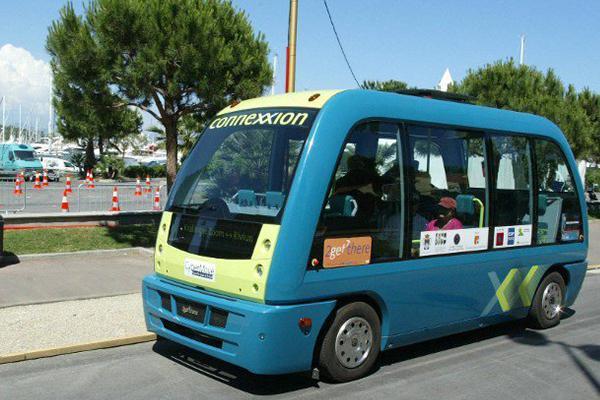Paris has initiated its first steps towards what it describes as a 'revolution' for the city as it embraces the dawn of autonomous vehicles. The French capital is one of the most famous cities in the entire world - and city officials have this week began experimenting with driverless buses.
City officials stressed their desire to prepare for the forthcoming 'revolution' of autonomous vehicles and decided to deploy two box-shaped electric vehicles capable of carrying around 10 people around the city. The vehicles have been deployed within the safety of a special line on a bridge that connects two railways stations on the east of the city.
Paris deputy mayor, Jean-Louis Missika stated that he feels the deployment of driverless buses represent an exciting transformation for the transportation industry. He said, "Autonomous vehicles represent a revolution for every city on the planet which will change our urban environment and public space in spectacular fashion over the next 20 years."
The experiment will last for three months, and it represents the first stage of the city's embrace of self-driving vehicles which use a combination of lasers and cameras to detect other objects and people around them.
The head of the Paris Transport Network, Elisabeth Borne outlined her vision regarding the future of autonomous vehicles saying how she felt the driverless buses would one day connect homes and railway stations in the Parisian suburbs - which are currently served by overland trains known as RERs.
"We dream one day of having buses like these parked near RER stations which would come to collect passengers on demand," she told reporters at the launch. We need to start thinking from today about how to train drivers so they can shift into the new jobs created by autonomous vehicles."
Some have expressed their doubts over the subject of autonomous vehicles not only regarding the issue of safety, but also the ethical and economic questions posed by its emergence - but one of the obvious questions being asked is what happens to the normal bus driver?
In October, delivery drivers got an uncomfortable glimpse of the future when a self-driving truck built by Uber's Otto unit successfully delivered a beer shipment.
Cars with some autonomous functions are already on our roads, and more than a dozen automakers including BMW, Kia, Volkswagen and General Motors are racing to get fully self-driving cars to market by 2020.

